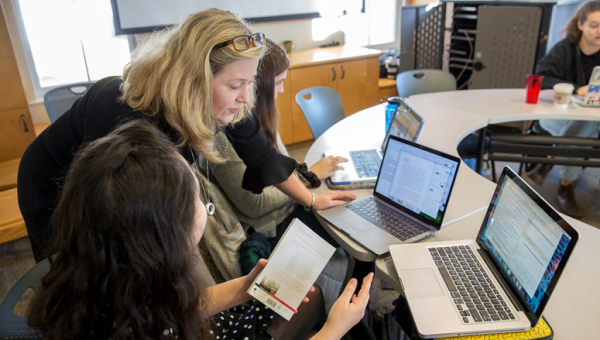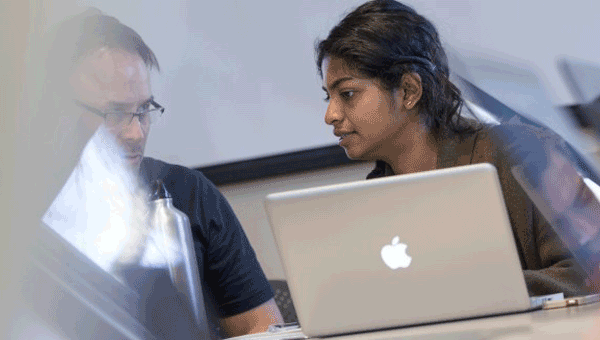Digital Humanities at Kenyon
Digital humanities at Kenyon encompasses a dual lens. On the one hand, we empower our next generation of thinkers with the conceptual framework underlying our Age of Information — from dataism and algorithmic thinking to synthetic biology and artificial intelligence. Our unique approach to computational thinking positions students to engage with the many practical, theoretical and ethical issues surrounding technological innovation and social change.
At the same time, digital humanities at Kenyon explores the most recent computational approaches as a way to augment — rather than replace — more traditional humanist inquiry. Students today can imagine and pursue new avenues of research by identifying unexplored datasets of text, image, and sound, while embracing new computational frameworks that are increasingly powerful and easy to use. Central to our mission is a focus on finding interdisciplinary solutions to the challenges facing us today.
Students interested in digital humanities are encouraged to start with our introductory course, "Programming Humanity." Advanced courses include "A.I. for the Humanities." All digital humanities courses at Kenyon are project-based, and students will have a portfolio of innovative projects by the end of their course of study. Students who have taken at least two digital humanities courses are invited to apply to become Digital Humanities Research Fellows with our {K}DH Virtual Colab.
Student Research
Through their digital humanities coursework, Kenyon students explore a wide range of subjects from popular sitcoms to U.N. speeches to COVID-19. Learn more about recent projects.

